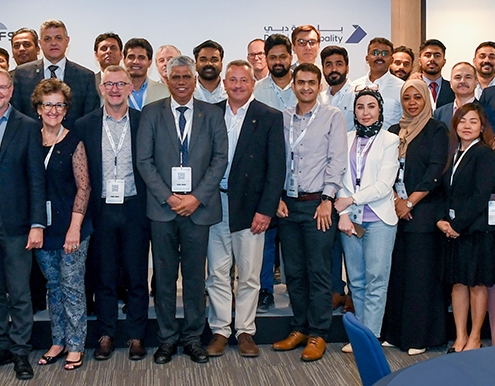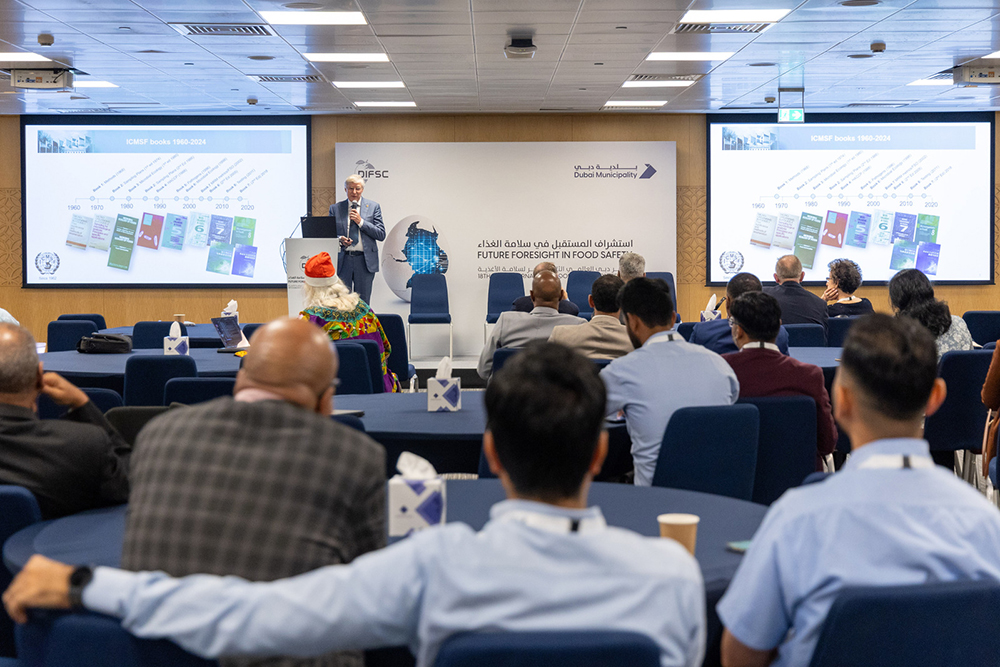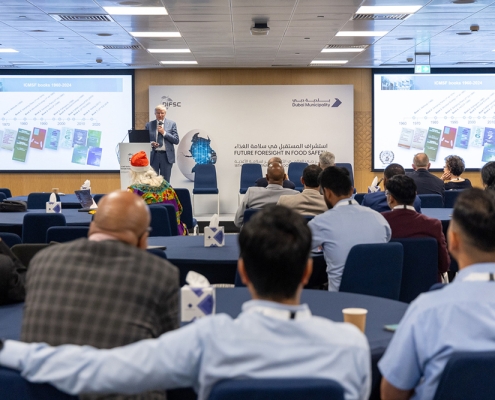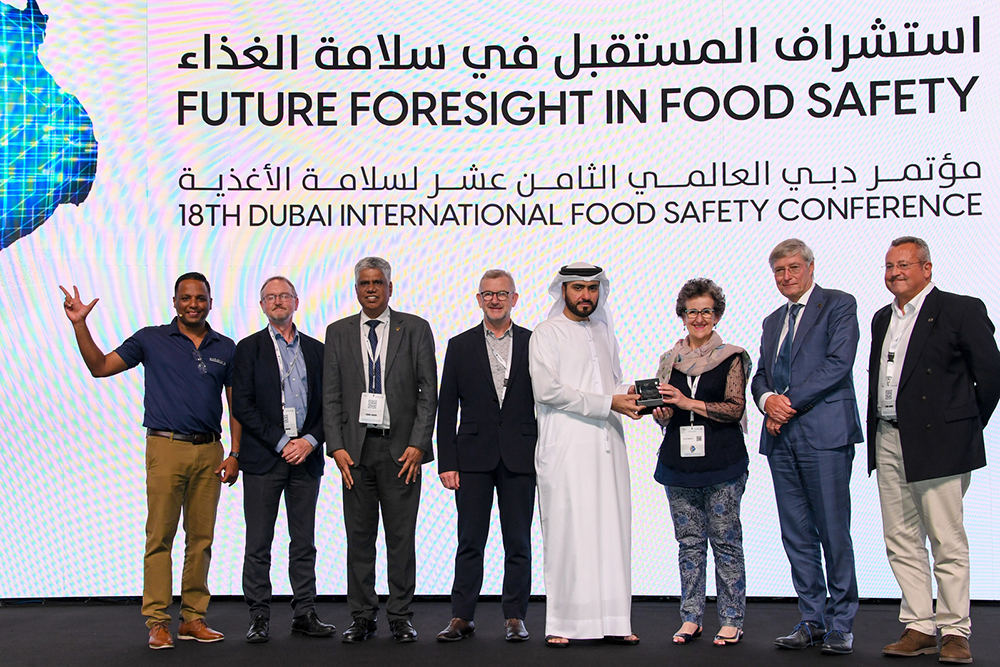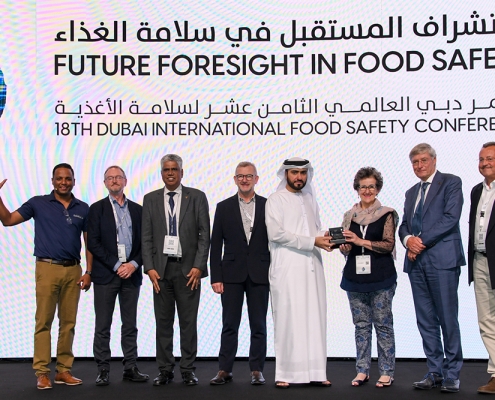18th Dubai International Food Safety Conference
21 to 23 October 2024, Dubai, United Arab Emirates
At the 18th Dubai International Food Safety Conference, the ICMSF hosted an insightful session titled “Useful Microbiological Sampling and Testing Underpinning Risk-Based Food Safety Management.” This session featured presentations by prominent ICMSF experts who shared key statistics, practices, and real-world challenges in implementing effective microbiological sampling and testing strategies within modern, risk-based food safety frameworks.
The session provided an in-depth exploration of both foundational and emerging topics related to food safety management, covering a range of practical insights and future-focused discussions. Below is a summary of the key topics and speakers:
- Introduction to ICMSF and Its Food Safety Management Concepts – Leon Gorris opened the session by outlining the fundamental concepts of ICMSF’s approach to food safety management, highlighting how these frameworks support global food safety practices.
- Operational Principles of Effective Microbiological Sampling and Testing – Peter McClure discussed the core principles that make microbiological sampling and testing useful within risk-based food safety management, emphasising operational best practices.
- Microbiological Sampling and Testing in Meat and Poultry Supply Chains – Kiran Bhilegaonkar delved into sector-specific challenges and strategies, focusing on how targeted sampling practices contribute to safety in meat and poultry products.
- The Listeria Management Challenge – Lucia Anelich provided insights into managing Listeria risks, covering the complexities of microbiological sampling, testing, and the development of standards aimed at minimising contamination.
- Big Data’s Role in Food Safety Risk Management – John Donaghy examined how advancements in big data analytics are transforming food safety risk management, influencing both government policies and the decision-making processes of food supply chains.
- Codex’s Quantitative, Risk-Based Metrics – Wayne Anderson highlighted the importance of adopting innovative, risk-based quantitative metrics as promoted by Codex, and how these metrics contribute to a more systematic approach to food safety.
The session concluded with a dynamic panel discussion titled “The Role of Microbiological Testing in Food Safety Management – Myths and Facts,” moderated by Bobby Krishna. The discussion offered an engaging platform for experts to address common misconceptions and clarify the realities of microbiological testing in contemporary food safety management.
This ICMSF session underscored the importance of aligning microbiological sampling and testing practices with risk-based management principles, equipping industry stakeholders with strategies to enhance safety outcomes and adapt to future challenges in global food supply chains.


